The Ministry of Defence has confirmed ongoing discussions about the future of the Harland & Wolff shipyard in Belfast, with a focus on the shipyard’s role in delivering the Fleet Solid Support (FSS) ships.
According to a recent parliamentary exchange, Defence Minister Luke Pollard highlighted the importance of the shipyard’s future in response to a query from Conservative MP Mark Francois.
Francois had asked about the discussions between the Defence Ministry and the Chancellor of the Exchequer regarding the shipyard and its involvement in the contract for three Fleet Solid Support Ships. In response, Pollard stated:
“Ministry of Defence Ministers and officials have regular meetings with counterparts in other Government Departments, including with the Chancellor of the Exchequer, on a range of matters, including the future of Harland & Wolff’s shipyards.”
The future of the Harland & Wolff shipyard has been under scrutiny, particularly regarding its contribution to the FSS ship programme, a priority for the Ministry of Defence. Pollard added that there has been significant engagement with Navantia UK, the Prime Contractor responsible for the delivery of these ships.
He stated:
“There is extensive engagement with Navantia UK as the Prime Contractor to understand what steps the company is taking to ensure delivery of the Fleet Solid Support (FSS) contract and management of its supply chain.”
Harland & Wolff, the Belfast shipyard famous for constructing the Titanic, entered administration in 2024 due to financial struggles and failure to secure a £200 million loan from UK Export Finance.
This marked a significant blow to the yard, which has been attempting to recover after years of instability. Despite its ongoing work, including contracts for the Royal Navy, there are growing concerns over potential job losses and the future of the shipyard as it seeks new ownership.
This isn’t the first time Harland & Wolff has faced such difficulties. In 2019, it also went into administration, later being acquired by InfraStrata, a company focused on energy projects. Despite efforts to diversify and revitalise the yard, including participation in constructing Fleet Solid Support ships for the Royal Navy, financial troubles have persisted. The shipyard has struggled to meet its commitments, raising concerns about the completion of key naval contracts.
Current discussions are focused on safeguarding jobs and ensuring the yard can fulfil its obligations.
Fleet Solid Support
According to DE&S, Fleet Solid Support (FSS) will provide support ships designed to deliver crucial munitions, supplies and provisions to the Royal Navy while at sea.
“They will provide logistical and operational support, including counter-piracy and counter-terrorism missions and will collaborate with allies on operations.Each ship will have a core RFA crew of 101, with accommodation provided for an additional 80 personnel operating helicopters, boats, or performing other roles when required.
The ships are designed with an emphasis on minimising carbon emissions, equipped with energy-efficient technologies to decrease power consumption and are adaptable to reduce their carbon footprint by using low-carbon, non-fossil fuels, and future sustainable energy sources. They are also designed to be adaptable from the outset to achieve a Carbon Zero status by the end of their 30-year operational lifespan.
The production of the first FSS is expected to begin in 2025 across three shipyards and all three ships will enter service after final equipment fits and military trials, by 2032.”



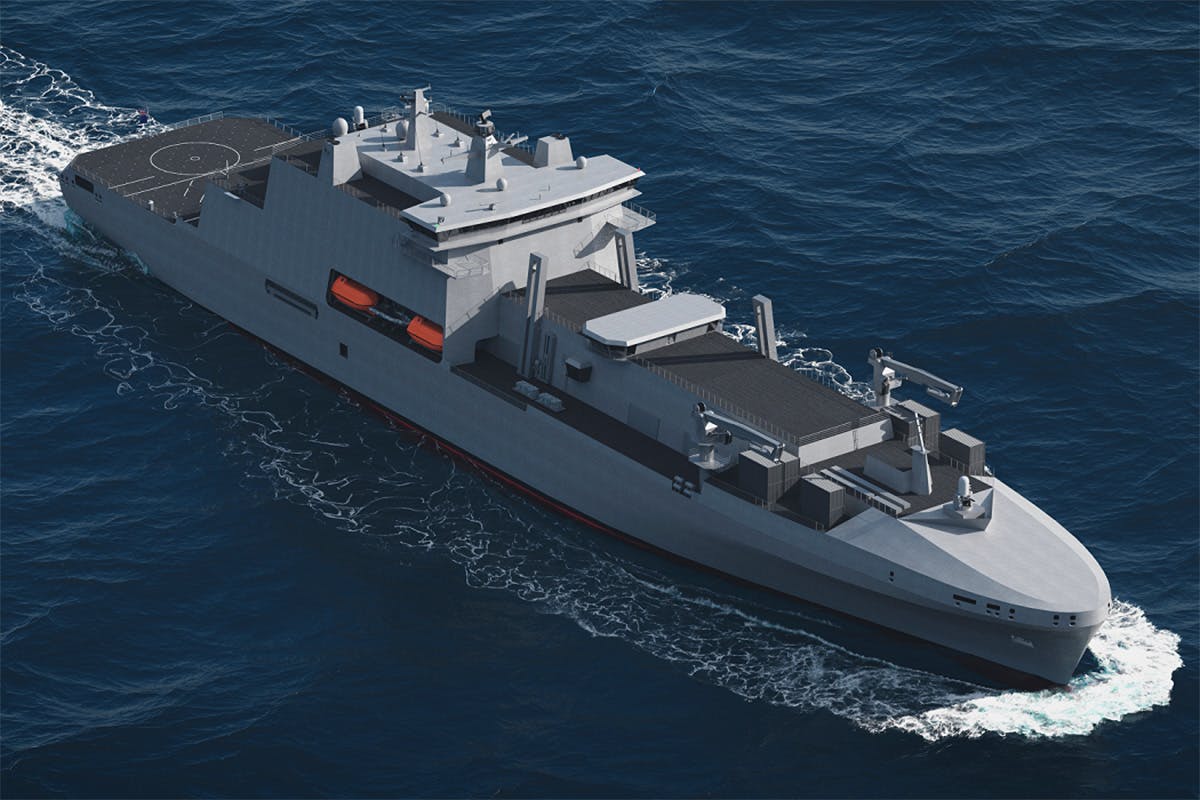
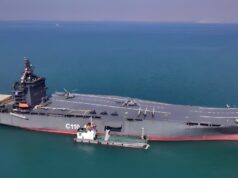

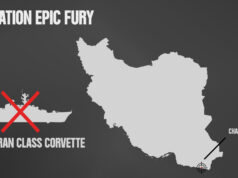
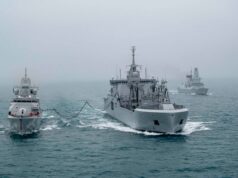




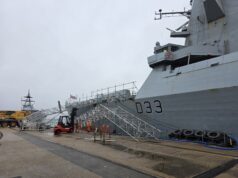
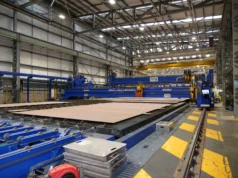

Maybe the yard should be nationalised as a strategic asset?
Yep but not nationalised by Spain 😡
Last time any British government nationalised a ship yard it did not turn out well. I would take Navantia taking over the yard any day of the week.
However as we are not prepared to fund a larger fleet it’s probably best we accept the two surface yards we have and get large RFA made in South Korea to British designs.
We just can’t sustain 3 surface yards.
Jim sometimes you really need to think before you speak ? Firstly neither of the 3 existing surface yards can build large ships anymore, they build Frigates and Destroyers. So if you want to build in UK you do need a large yard that can not only build the FSS, MRSS but maintain them as well.
Do yourself a favour sit down and read the NSBS the need is all there in black a white. And yes you are right I do actually think that going down the South Korea route would be the quickest and cheapest option.
But it would be political suicide, this is Belfast and good help a PM who throws then under a bus.
As for Navantia all they will do is give H&W the forward blocks to build and keep the expensive (profitable) stern (accommodation, propulsion etc etc) for themselves and then float it up to Belfast to be welded together.
The other real imponderable issue is the QE carriers, other than Rosyth we have nowhere to dock them. But H&W has the Belfast Dock which was designed to be able to take CVA01 and USN CVNs. But it needs an active shipyard with a workforce. Read Navy News and put “Queen Elizabeth carriers docking problems” in the search box.
The NSBS is a joke, it’s an intellectual exercise with zero follow through even from the government that commissioned it.
Why is South Korea political suicide? We already built four Tides there and nobody cares.
There are only 3 FSSS left to build and that’s probably the only vessels too small for Rosyth and the Clyde.
Time to admit we can’t build such vessels in the UK effectively and move on.
Jim there’s also 6 MRSS to go, by which time it’ll be well into the 2030’s and we’ll be looking at replacements for the Rivers and Tides.
Nationalised it. Build those ships in the UK. Keep those jobs in Belfast, not South Korea. It keeps the skills sovereign. We have seen in Ukraine the danger of relying on “allies”. Even the French know that. Be as self-sufficient as possible, or repent at leisure with a big butcher’s bill, even if it costs more.
I think John Parkers report was a good piece of work but the implementation wasn’t good, aspects were cherry picked.
But agree we could have saved a lot of time and money just going to Korea, I reckon the MoD itself and Treasury has spend 10s of millions already on this F up. Strategically we still have Rosyth, Economically including the Tides it would have equated to less than 2b of orders overseas over 20 years, less than 100m per year of our 1T GDP. And savvy government would negotiate some offsets reducing that further.
I’m all for bringing H&W back to life but our political class are completely incompetent it would be better to just have left it alone.
Clearly the business plan and the delivery team didn’t measure up when scrutinised. I think the sum involved, 200 million GBP is too small to have ben a stumbling block; road schmes cost more. I think there is something here we are not being told about.
The national interest is clear and one way or another these ships must be built. Years of running away from manufacturing and heavy industry turns out to have a cost. Who knew?
I know what you mean- it wasn’t even a loan, just a guarantee.
UK currently spending upwards of £15million/day on migrant accommodation and refuse H&W a loan. Absolute disgrace
Hello phil.
It looks like a coup. The message is clear to me. The M.o.D. don’t like the way the business is structured and managed. They want a different team to take over. That is my reading. I agree the sum of money involved set against numerous ‘metrics’ is worse that a disgrace, it’s an insult.
A good idea, but the government will not make the investment. Hope I’m proved wrong.
What plonker at the MOD thought giving a complex ship building program to a failing yard and a Spanish company was the best deal on offer. Geez
I think it was the only deal on offer in the U.K.
That and had we guarenteed their loan it probably wouldn’t have been an issue.
There is a reason no one would guarantee their loan and they went bankrupt. H@W parent company was a debt filled scam.
And if the government had underwritten the loan they wouldn’t have gone bankrupt Jim.
Yes they would it would just take longer and piss £200 million more tax payers money up the wall.
They literally have a massive government contract for the FSS waiting to start, so no, it wouldn’t have taken longer, they just needed a loan to keep running until the work could start.
Agreed.
I must have been misinformed. I thought it was a start up looking for capital to get started.
I think his name was Shapps 😀
It does seem strange that this new government can find £22billion for untried & risky carbon capture, yet cannot find £200 million for Harland & Wolff.
I have every confidence in Milliband’s carbon capture strategy. You have to understand the technology.
As I understand it the C02 will be pumped under the North Sea into caverns where thousands of elves and dwarves will be working to turn the gas into trees, thus achieving our net zero own goals.
Madness. Everything about net zero gives off the smell of a scam that leaves millions without light and power and a useful job.
£22 billion for a hole in the ground. Hardly value for money. The South Koreans would build us 4 new nuclear rectors for that. At least we would get a useful amount of carbon free electricity for that.
Tend to agree, but that doesn’t fit the government message about new jobs in renewable energy to replace North Sea oil industry jobs lost in the net zero transition.
What planet are our Politicians on ? NAVANTIA is 100% Spanish Government owned, so the owners not only have 100% zero interest in the future of U.K. Shipbuilding, but are one of our prime rivals in the export market. They are doing this purely because their export order book is pretty bare and the majority of the value work for our FSS will be built in Spain.
The irony of this is just beyond a joke, Navantia is a Nationalised conglomerate of several Spanish firms the largest and most modern of these was SNCS.
In the early 20th Century Spanish Naval shipbuilding was corrupt, badly managed, out of date and verging on collapse. But Spain needed to rebuild its navy post Spanish American war, naturally they turned to the UK but specified that ships had to be built in Spain (largely with U.K. components such as engines, armour and weapons) to U.K. designs.
SNCS was set up out of some of Spanish firms to build those ships, but it was owned and modernised by a partnership of Vickers, John Browne and others.
So now it all comes full circle.
If it were me I’d re nationalise the yard, recapitalise it, get the infrastructure modernised and then adopt the Australian pattern for Nationalised yards. Their yards are leased to the companies that are selected to build ships for the RAN. Hence Navantia used the same yard to build the Hobart AW Destroyers that BAe will build the T26 in.
Sounds like a sensible plan.
Have you seen how much Australia has to pay for ships? Unfortunately the British government has a terrible legacy of nationalisation and won’t commit to enough ships to fund three yards. If we can accept the Tides being built in Korea I don’t see any difference in the FSSS. It’s not like the UK is short on jobs or needs the extra input that a handful of large RFA ships would generate. Subjecting poor communities like Belfast to a boom and bust industry for nothing other than nostalgia purposes is wrong, the UK might at a stretch be able to export a few frigates but no wealthy advanced industrial country like the UK is ever going to be able to export large auxiliary vessels. Countries like South Korea and Spain can barely compete on this front and their wages are much lower than ours.
That’s nothing to do with the yards it’s their Labour costs ! The continuity comes not just from building but maintaining them. Do the math 2 QE, 3 MRSS & 6 FSS.
QE is on a 50 year build cycle and there is only a budget for 3 MRSS not 6. (I presume that’s what you refer to) Thats insufficient to keep one yard going and it probably jeopardises one of the other two yards as 24 escorts is not enough for 2 and we will probably only get 19 anyway.
I would love to see a bigger navy and three surface yards going but I rather see an expansion in SSN numbers and there is no budget for both.
Jim you cannot build larger ships at Rosyth or on the Clyde anymore ! People keep on about building in the Drydock at Rosyth, but without access to the H&W drydock it has to be available for the QE’s 24/7/365.
And even then it will not be available as Babcock has to decommission the nuclear submarines that are still stored there.
That is also one of the reasons that I am actually of the opinion that as a SB site it is the one that is probably unsustainable long term. Given the investment by BAe on the Clyde at the 2 yards, they have the capacity to build all the surface ships we need.
Pardon? Are you stating that BAES has the capacity w/in the two shipyards on the Clyde to build all FSSS, MRSS, T-26s and T-83s w/in proposed programme timelines? W/ or w/out massive additional infrastructure construction and investment?
The cost to extend Portsmouth drydock to accommodate the carriers was approx 500m. Koreans will build the FSS for around 1b based on the prices of the Tides, so frees up 500m to develop Portsmouth. There are options.
The Dutch are clever and build in the niche market of complex small vessels where they have almost gained a monopoly despite having a high wage economy and being in the center of the Northern axis of Euroland.
Definitely an area where we should be trying to compete if tied in with RN future requirements.
Government Owned, Contractor Operated (GOCO) facilities are one component of the US MIC. Concept has a proven track record in the Colonies. Curious, is there any real deadline re a decision on the path forward? Predict HMG announcement re matter a full thirty minutes before deadline.
Thanks for reminding me of that, I think BAe is one of Contractors at some of those facilities. Which is exactly the model I was suggesting.
We ourselves have GOCO facilities.
Aldermaston and Burghfield were two examples till recently.
The MoDs T&E sites and ranges are another. Retained in MoD ownership but operated by QinetiQ under the LTPA.
Boscombe is another.
Assume Sheffield Forgemasters and the Newton Aycliffe chip site will also be GOCO.
Actually, had assumed that was the case. 👍
Now, if someone could please provide a SWAG estimated timeline for a decision on the path forward for FSSS Programme? ASAP would be the standard answer. Sometime post 2025 SDR, might be the bureaucratic answer. (Manyana (sp?)), or never, may be the Navantia/Spanish government answer. 🤔
Wow, I can’t believe our only FSS practically on its last legs we’re only going to begin building our first extremely overdue replacement next year! Plus even H&W are on the verge of folding.
All this on the verge of global conflict.
Probably a daft suggestion, but we cannot seem to get these supply ships built after years of messing about, yet there are RFAs tied up, i.e the Wave class, which may never go to sea again. Possibly convert them to supply ships? Might not be ideal, but at least we might get something a bit quicker than a new build and I’m sure more complicated conversions have happened before.
Just as, if not more expensive than building the new ships, still needs a yard (which is the sticking point) and are 20 years old so would need replacing in a few years.
Good points, no doubt they will just rust in peace…..
It’s all very well building new ships,but are we going to be able to crew them.the rfa used to be a good long term career ,with good wages etc.the younger generations attitude has changed.i work with about six apprentices,and I was to mention the rfa,they would think I meant the raf.the don’t know the first thing about it.
With regards to support ships would an option be to buy one from the US? Something similar to Fort Victoria and have it assigned to the carriers for the next decade until this mess gets sorted. Are the US and UK auxiliary ships that different? I know there’s the issue with pay but that can be sorted in a month if the will is there.
US declined a request as they only have enough for their current commitments.
I hadn’t realised that. Thanks for the reply.
If they have the commitment I would like to see Babcock get H&W in Belfast. There are notionally 13 ships in the RFA and given that force level you could look at a drumbeat replacement on something like one ship every two years, which combined with some ship repair, refits on INS vessels and perhaps work on offshore renewables would suggest there is a viable business if the vision and long term commitment is there.
Having to use a Spanish nationalised company as Prime contractor is a scandal, which is what happens when short term mindset politicians run your country for decades. It plagues the U.K.
Navantia are a subsidised competitor to U.K. yards and should be treated as such, which means suck them dry for expertise to get these ships built and re establish the skills we need to be self sufficient.
The challenges are huge with the NI unemployment rate the lowest in the U.K. a spending squeeze and the RFA on its knees but the long term rewards are high paid jobs and skills not centred in London. It’s called investment.
Spot-on. When will the UK learn.
What’s the INS?
The Irish Naval Service, which is small and undermanned but could be a source of work in the future.
Yeah, no. Of the current fleet and the potential future buys there is exactly one that depending on selection may not fit the existing facilities in Cobh (and that’s not touching the long ambition by the NS to restore the Haulbowline dock), that’s the MRV if it ever happens (which is an open question given the multiple fist fights going on in the DF/DOD/Finance), which is likely to be built in the EU, not sure a U.K. company has even tried putting anything forward for it.
Usually Doyle will use some work crews from H&W as Subbies if they are short labour or can’t handle things in house in Cobh but H&W as a yard is highly unlikely to be a refit yard for the NS. Basically of the next 30 years of ships, 1 potential ship is not going to make or break keeping H&W operational/viable. It’s not Dublins job to do so.
To put it in context, while it’s not anything the NS is thinking about, even the Type 31s can fit into Cobh though it’s a tight fit, with only a meter to spare at the entrance. What exactly do you think Ireland would be buying that would need the capacity of H&W?
Who said that 1 ship was going to make H&W viable because I didn’t.I merely highlighted the potential opportunities that H&W could tap into. You mentioned that H&W labour is sometimes used in Cobh, which rather reaffirms my point.
Babcock have a good track record of doing this with railway engineering work being undertaken at Devonport.
I wasn’t banking on the INS becoming a blue water Navy anytime soon.
👏 Totally agree.
Infrastrata fitted Tory ideology- make a killing at the taxpayer’s expense. The country is now under new management. The recently published labour government green paper industrial strategy identifies defence as one of the key sectors for investment in hi-skilled jobs, technology and exports.
Ironically labour’s green paper will cost the tax payer even more. They need 40b more to fund it. You need to replace high skilled with high paid.
Lastly the drive for defence exports was the last government’s strategy also. Both parties are completely feckless tbh but Labour has shown in the first few months it governing by ideology not logic, our traditional hi value exports have been to places like KSA and I doubt they’re on the government list as a target export market due ideology.
The scandal was BAe and Babcock forming a bidding cartel for the FSS contract the trying play the political card saying they where the only UK bid, of course at much higher price.